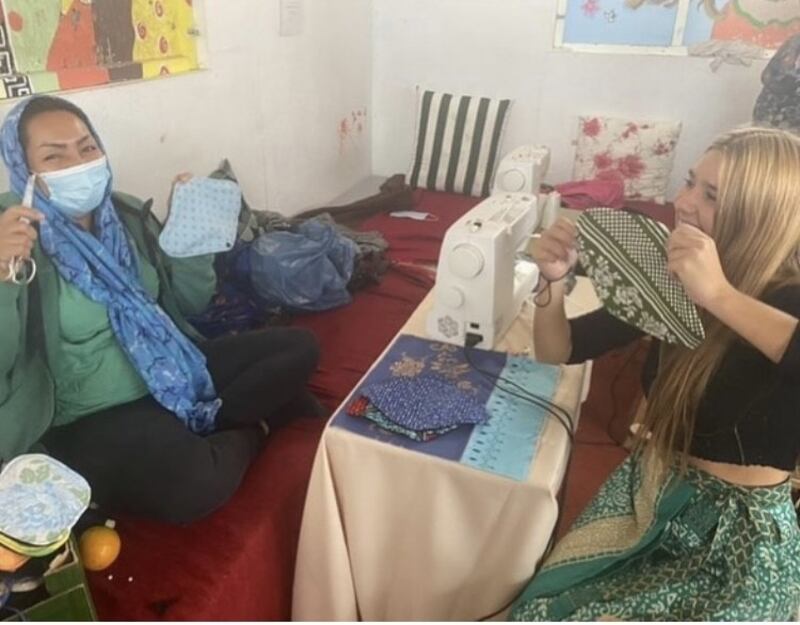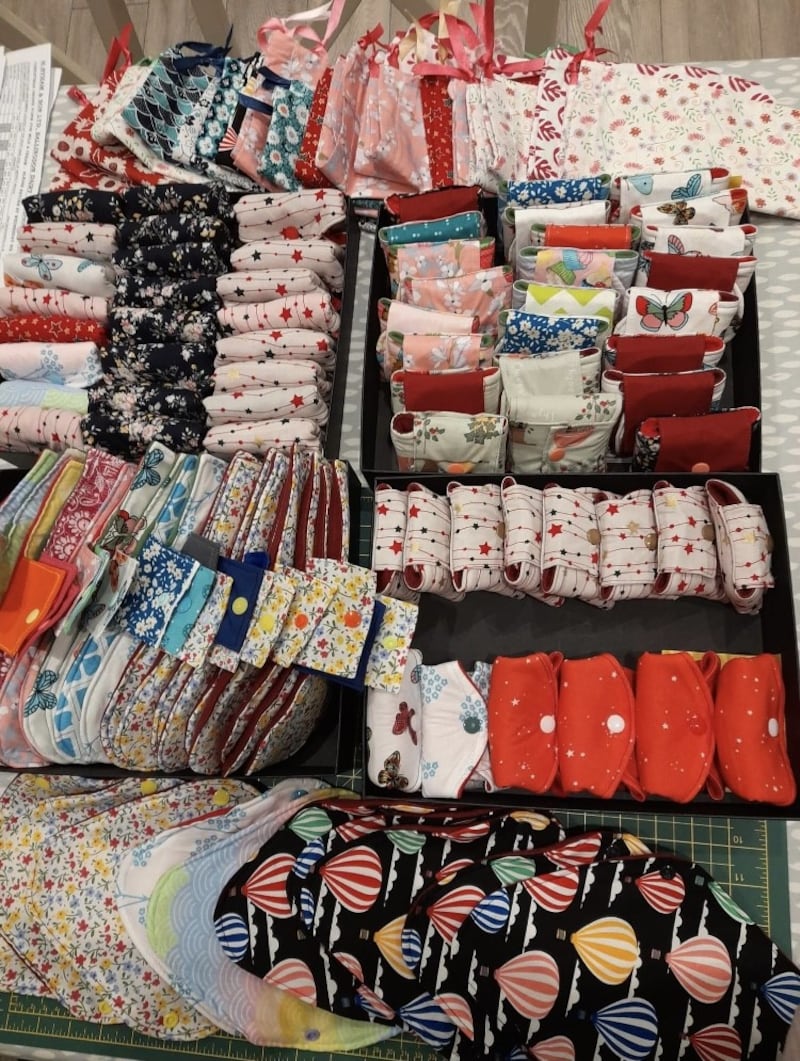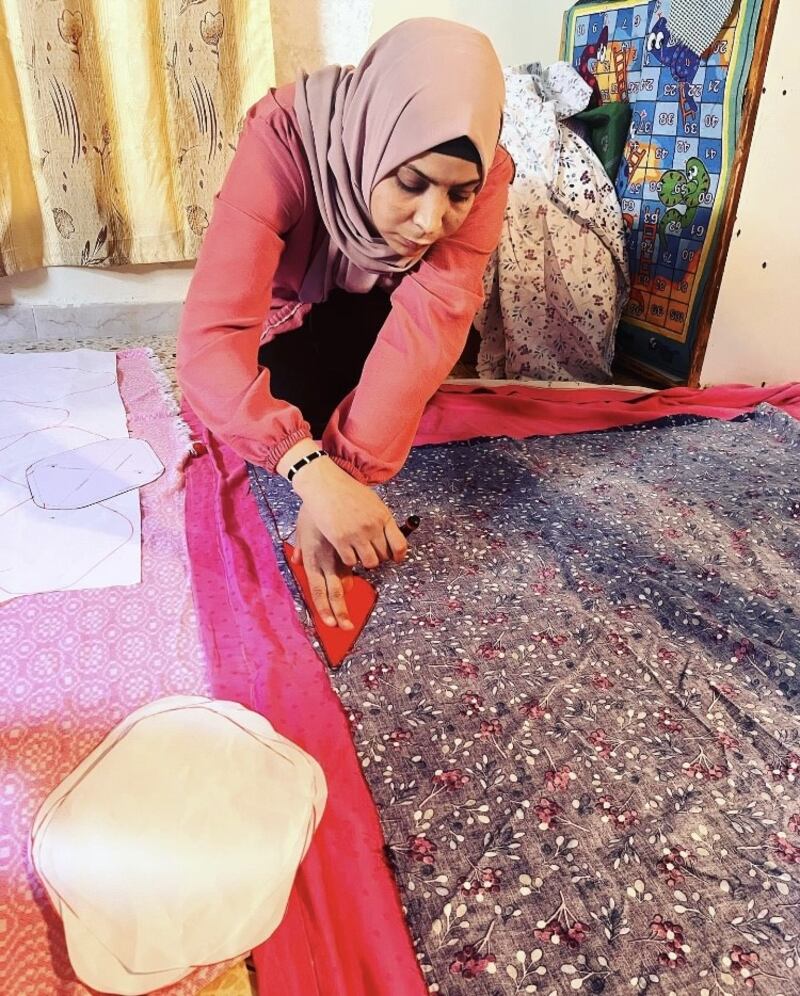A student who began sewing reusable sanitary products for refugees during lockdown is now running a global network of 1,000 volunteers.
University of Bristol student Ella Lambert, 21, learned to stitch using YouTube videos during the first national lockdown, and has since launched the Pachamama Project, which aims to end period poverty.
The languages student, from Chelmsford in Essex, set up the not-for-profit group with university friend Oliwia Geisler in August last year.
Miss Lambert had wanted to work in refugee camps abroad in summer 2020, but when coronavirus restrictions forced her to stay at home she started sewing sustainable period products for women instead.
Since then, more than 30,000 patterned pads which come in discreet matching pouches have been made by over 1,000 volunteers in the UK, Germany, Italy, France and the US using donated materials.
Miss Lambert told the PA news agency the project was also linked to her personal experience with serious period pains and a desire to break the stigma associated with talking about them.

“I’ve always really struggled with period pain, like absolutely atrocious period pain which would mean that I’d have to miss out on school and cancel plans last minute,” she said.
“So although I’ve been really lucky, and I’ve never had to experience period poverty as such, I do know what it’s like to have to miss out on really important things and appointments because of my period.
“This seemed like a really easy way of combatting period poverty and making sure that people didn’t have to deal with that because they had the products they needed that would last.”
She said the project “went from zero to 100” this year after initially making the pads with Miss Geisler and her mother.

“It’s really escalated from a little university project from a kitchen table to a global network,” she said.
The student recently visited a refugee camp in Lesbos, Greece, where she worked with local women who were able to distribute the products for a profit.
She told PA: “I was actually leading the distributions which was amazing.
“We have Pacha clubs, we’re calling them, in Lebanon and Greece.

“That’s when we have a group of women making them and then, for example, in Lebanon, they’re selling them, but to NGOs, so they then give them away again to other refugees.
“So not only do those refugee women get to earn a bit of an income, but they also have a further impact of actually reducing period poverty in their community.
“I read a stat today saying that 76% of people who menstruate in Lebanon are struggling to afford period products because of the huge inflation and that kind of economic crisis.
“What better way to actually try and come up with a solution for this problem, but to have the people leading it be the people in that community?

“I get letters every day from my volunteers… we get thousands of every week.
“You know, letters saying how much the products helped them.”
Miss Lambert said she hopes to get schoolchildren involved in making the pads and bring conversations about period poverty to their kitchen tables – and help end the stigma.
The project is named after the goddess of fertility Pachamama, a figure revered by the indigenous peoples of the Andes.








